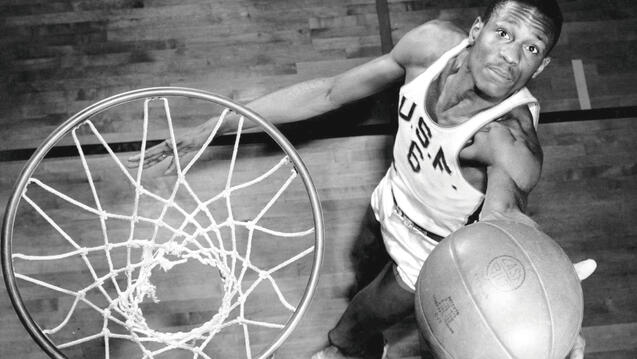How to Fuel a Victory

1. Can foods really enhance athletic performance?
Absolutely. Eating from the five basic food groups at most meals is key: fruits, vegetables, grains, protein, dairy — every day. All five feed and fuel our muscles, brains, bones, and vital organs.
2. Do different sports call for different foods?
No. But different sports call for different proportions of food. Soccer’s a high-intensity sport, so half of your dinner plate will be covered in pasta or another carbohydrate-rich grain. Golf is a low-intensity sport, so half of your plate will be fruits and vegetables, plus one-quarter protein and one-quarter grains.
3. Do you address the whole student athlete — body, mind, and spirit?
Yes. Be mindful with your eating. It’s hard to focus in class if you ate a donut for breakfast. And it’s hard for your spirit to soar when your stomach is grumbling. I want you to develop healthy eating habits for life, not just while you’re here at USF.
4. Which nutrition myth do you wish would die?
The “alkaline diet.” It has zero scientific basis. If you eat a tomato, which is acidic, it will not make your body more acidic. Your body maintains its proper pH regardless of how acidic or alkaline your foods are. So eat that tomato!
5. Which performance foods should we all eat, whatever our age or athletic ability?
To build and fuel your muscles, lean proteins and dairy items like milk, cottage cheese, Greek yogurt. To recover from exercise, chocolate milk. To keep your gut happy, fruits and vegetables — the more colors on your plate, the better. Ketchup doesn’t count.


